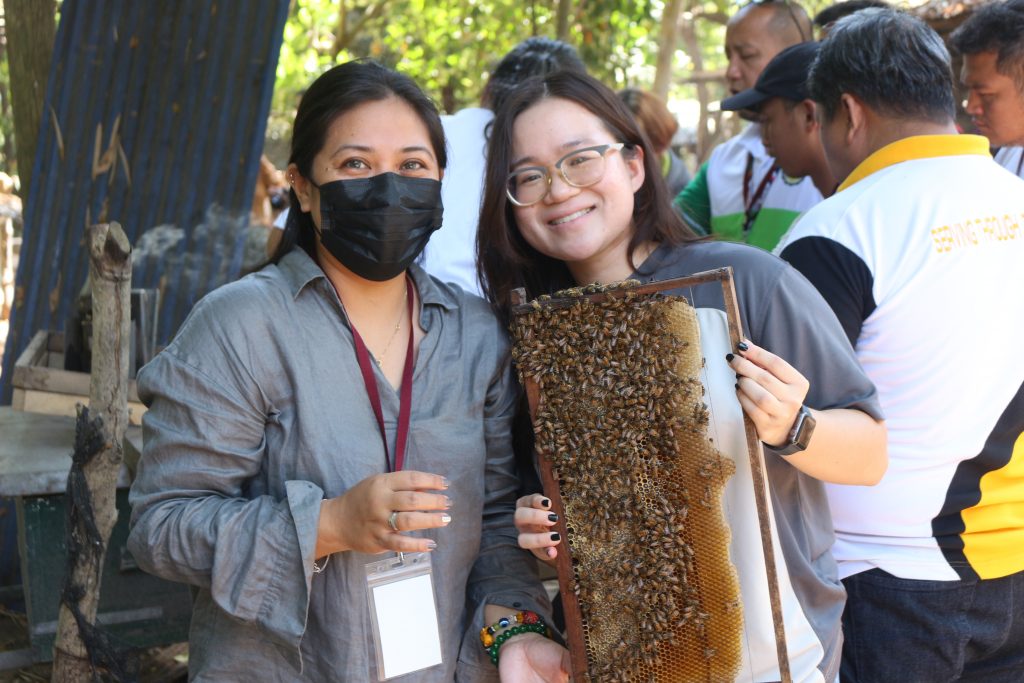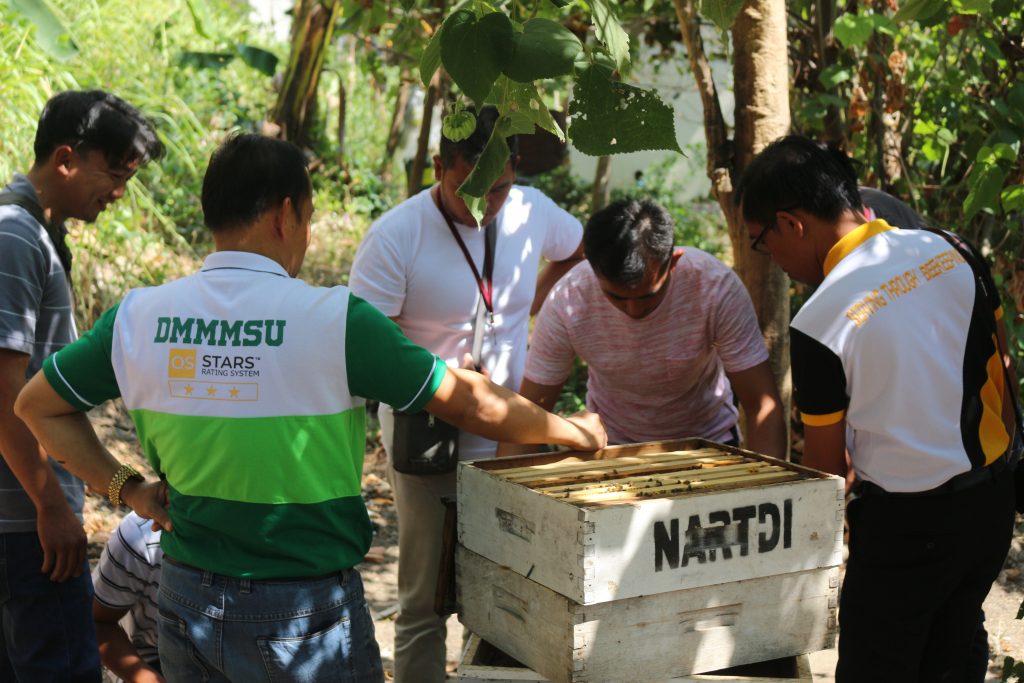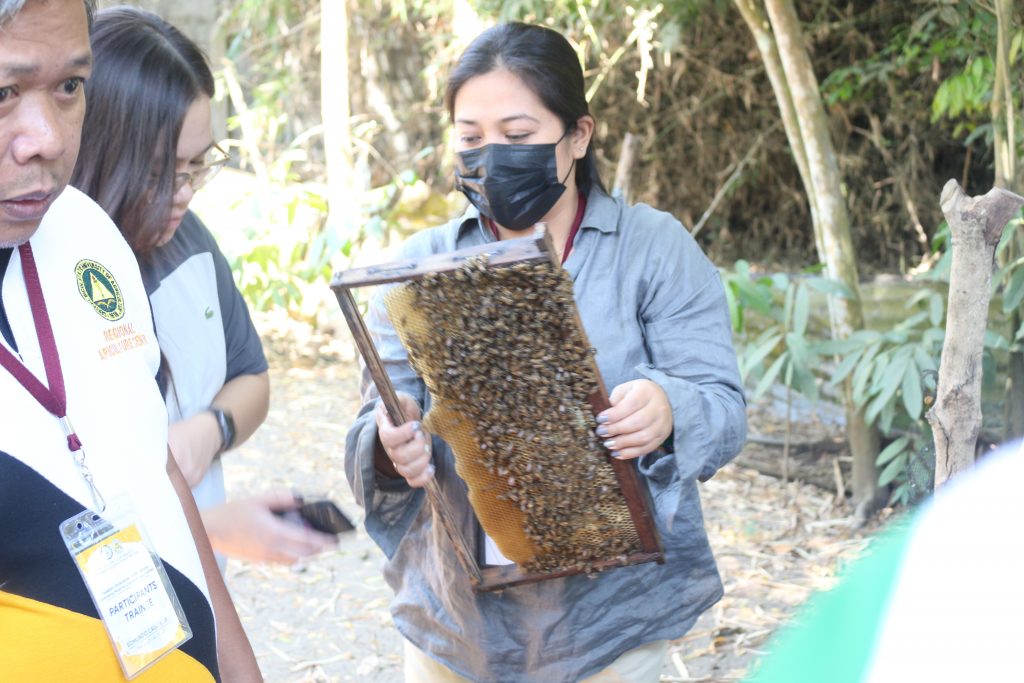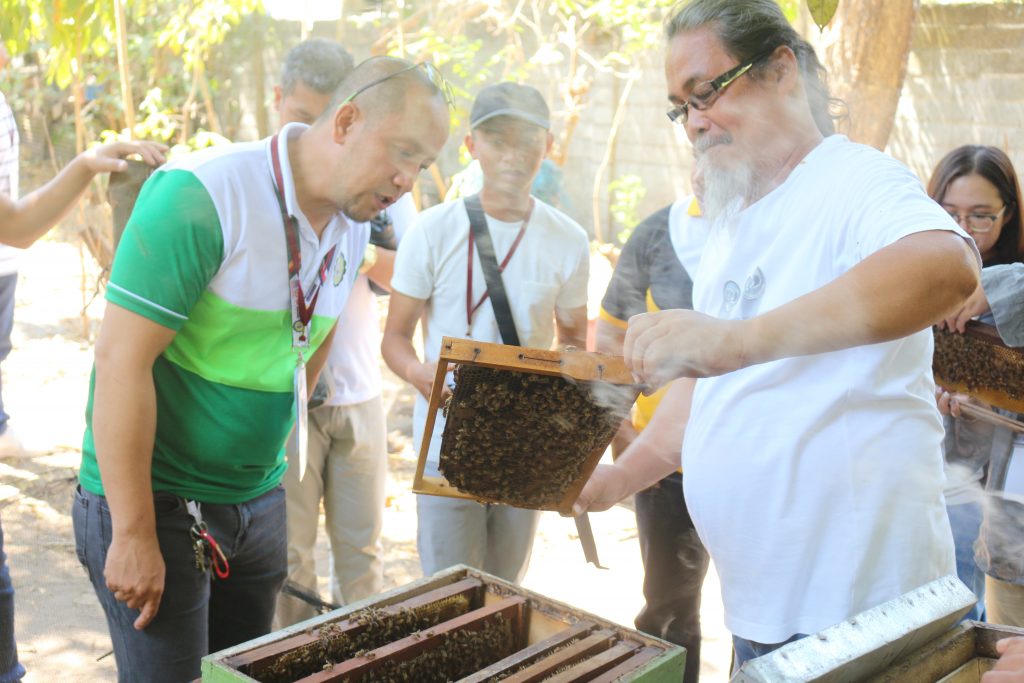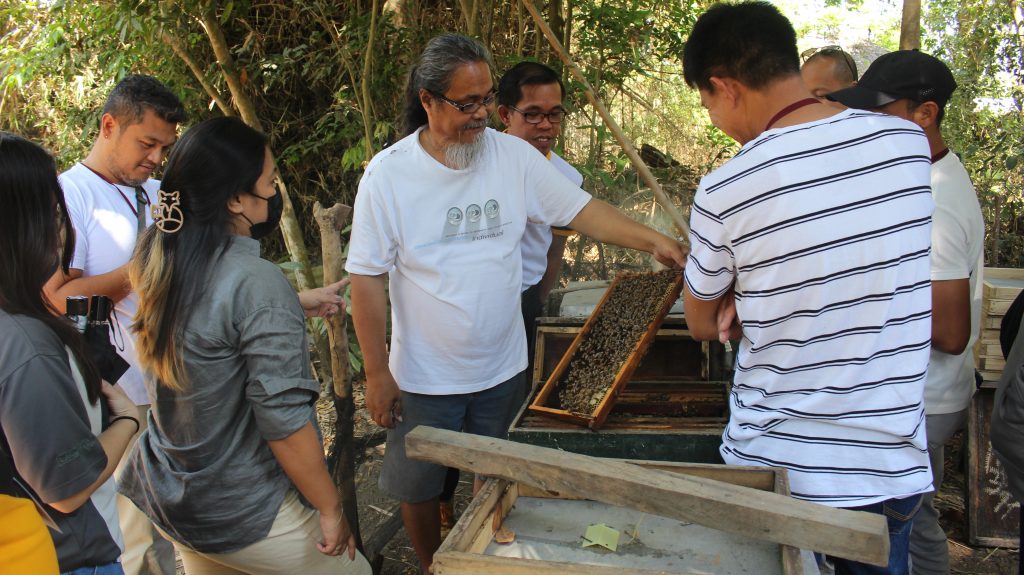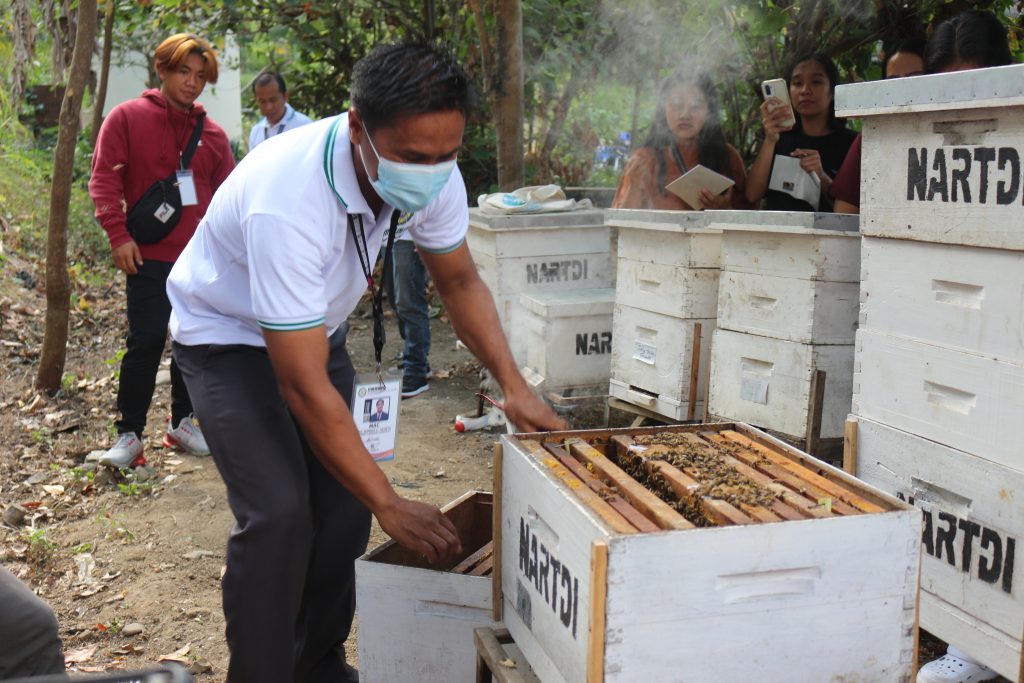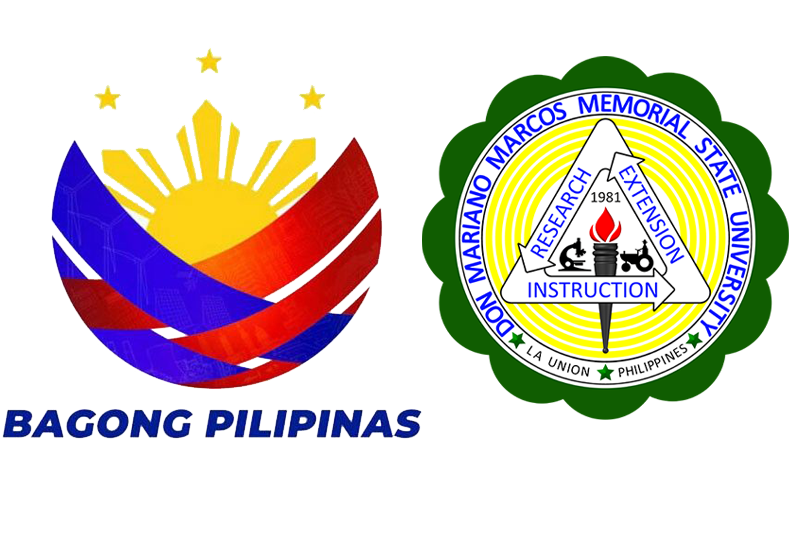The National Apiculture Research Training and Development Institute (NARTDI) recently concluded a three-day training activity aimed at enhancing capabilities in beekeeping. The training, titled “Capability Enhancement in Beekeeping: Cultivating Minds for Livelihood Opportunities was held at the NARTDI Conference Hall, Sapilang, Bacnotan, La Union on February 27-29, 2024.
The participants were representatives from apiculture satellite centers, private entities exploring beekeeping ventures, seasoned beekeepers eager to expand their knowledge, and students from the College of Veterinary Medicine of DMMMSU-North La Union Campus.
The activity provided the attendees with comprehensive insights into various aspects of Apis mellifera beekeeping, covering topics on honeybee biology, hive management, honeybee pests, and diseases management, beekeeping tools & equipment, hive construction, bee pasture development, bee products & by-products, and economics of beekeeping. Experts in the fields facilitated interactive sessions, sharing best practices and addressing pertinent challenges faced by beekeepers.
The objective of this training was to equip participants with the necessary skills and knowledge to thrive in the beekeeping industry. Through the creation of an enriching learning environment, our goal at NARTDI was to empower individuals and organizations to leverage the numerous opportunities for apiculture or beekeeping.
Participants hailed from diverse backgrounds, reflect their growing interest in beekeeping across different sectors. Representatives from the Benguet State University (BSU) and Central Bicol State University of Agriculture (CBSUA) expressed enthusiasm about integrating newfound knowledge into their respective apiculture initiatives. Private entities eyeing entry into the beekeeping sector lauded the training program for its practical insights and actionable strategies.
“Thank you NARTDI for this opportunity,” Mr. Alvir E. Bausa, representative from CBSUA, said. “The training made us technically equipped with the basics of Apis mellifera beekeeping to help the beekeeping industry and educate other people on the importance of the bees in our environment.”
“The training provided us with invaluable insights into the different aspects of beekeeping,” Angelicon O. Galvez, a participant representing the private entities, stated. “We are now better equipped to get on our journey in apiculture, armed with the knowledge we acquired.”
As for the aspiring veterinarians from the College of Veterinary Medicine, the training served as a platform to explore the intersection of veterinary science and apiculture, underscoring the multifaceted nature of the field.
“As future veterinarians, understanding beekeeping practices is crucial for our academic and professional growth,” remarked by Pearl Lynne A. Baguioen, a veterinary medicine student. “The training provided us with a holistic perspective on apiculture. I hope that more students in our college will be afforded similar opportunities in the future.”
The culmination of the three-day training program was marked by a certificate awarding ceremony, where participants were recognized for their active participation and commitment to advancing their knowledge in beekeeping. Moving forward, NARTDI remains steadfast in its commitment to fostering excellence in apiculture and creating pathways for sustainable livelihoods.
With beekeeping emerging as a lucrative venture with immense potential for economic empowerment and environmental stewardship, initiatives such as the capability enhancement conducted by NARTDI play an important role in nurturing a skilled workforce and cultivating a thriving apiculture industry. As participants return to their respective endeavors, they carry with them not only certificates but also a renewed sense of purpose and determination to harness the power of beekeeping for sustainable development. (By Arvin C. Tuyan)
